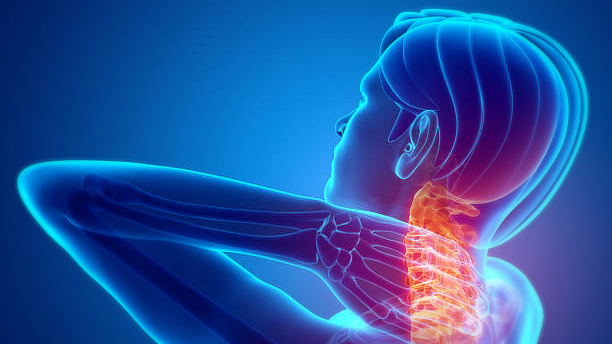(29 October is observed every year as World Stroke Day to raise awareness for the incidence, prevention, and treatment of the condition. FIT is publishing this story from its archives in this context)
No one ever says ‘no’ to a complimentary neck rub or a head massage post a haircut. After all, nothing soothes the frayed nerves as much as a nice and relaxing massage at the end of a hectic day.
However, a simple neck rub proved dangerous for 54-year-old Ajay Kumar in September.
When he reached home post his regular haircut and neck massage, he started to feel breathless. Investigations by doctors revealed the neck cracking had damaged Kumar’s phrenic nerves that control the diaphragm, which in turn regulates breathing.
A massage by an untrained hand on your neck can cause a lot of damage and even result in paralysis.
The brain communicates with the whole body via nerve fibres that descend through the neck and then spread all over. The blood supply to the brain also comes up from the neck in the form of four big tubes, two in the front and two at the back.
Any vigorous neck movement that pulls the neck backward or pushes it forward can injure these blood vessels.
Injury to a blood vessel, also known as ‘dissection’ in medical terms, may lead to blood supply getting blocked or reduced, causing a devastating paralytic attack or brain attack.
Neurology literature is filled with such case reports where neck manipulation or wrong positioning of the neck has led to injury to the blood vessels leading to a stroke or paralytic brain attack.
This essentially means that a massage therapist, a chiropractor, a beauty therapist, a barber, or anyone who has their hands on your neck can potentially kill you!
Terms like “Beauty Parlour Stroke” or “Barber Chair Stroke” have been coined for the same reason. As unlikely as it sounds, it is true.
Stroke Doesn’t Just Strike the Elderly
General perception is that stroke is prevalent in the elderly and the younger generation is safe.
Although it is true that stroke is more common in people aged more than 40 years, injury to neck blood vessels is one of the most common causes of stroke in young individuals.
The perception that brain stroke — a rapidly developing loss of brain function when a blood vessel in the brain is blocked or bursts — is largely a disease among older people needs to change.
You will be surprised to know that even though it may seem unlikely, we are subjected to such movements on a daily basis. Pushing one’s head back in the wash basin with the neck hyper-extended over the slim, cold ceramic edge, can, on rare occasions, cause injury to blood vessels resulting in clots and strokes.
So before you rush for a salon appointment, it is advisable to be careful and aware of the dangers involved with neck manipulation.
Simple Steps That Can Keep You Out of Danger
The first step in making a change for good is awareness of the situation. The second stage is following the precautions mentioned below and one should be safe and ready for a good relaxing massage.
- Avoid any vigorous movements or overextension of the neck. In fact, any movement that creates pain should be avoided.
- Do not crack your neck or go for neck manipulation.
- Injury to a blood vessel that can cause neck pain may also cause dizziness, vertigo, nausea or vomiting. Do not ignore these symptoms. Rush to the hospital.
- Avoid neck massages by unqualified staff.
While most of these measures will help one avoid a stroke, recognition of stroke symptoms is equally critical for a timely diagnosis.
Remember the six ‘S’ method to diagnose stroke:
- SUDDEN (symptoms start suddenly)
- SLURRED SPEECH (speech is not clear, as if drunk)
- SIDE WEAK (face, arms or legs or all three can get weak)
- SPINNING (vertigo)
- SEVERE HEADACHE/NECK PAIN
- SECONDS (note the time when the symptoms start and rush to the hospital)
Anyone of these symptoms can be present and is enough to raise suspicion of a brain attack or stroke.
So, time is of the essence when it comes to such neurological ailments. It is extremely important to educate people that stroke is treatable and every minute counts.
According to a study carried out by researchers in 2006 in USA, a patient with ischemic stroke loses 19,00,000 brain cells every minute. Every 10 minutes, the brain loses brain cells equal to the population of Delhi. Once you recognise the symptoms, there should be no delay in rushing the victim to the hospital.
So, the next time you go for a massage, make sure that you have a well-trained masseuse who relieves your stress and pain rather than giving them to you!
(Dr Chandril Chugh is Head and Senior Consultant – Interventional Neurology, Max Super Speciality Hospital, Saket.)
(At The Quint, we question everything. Play an active role in shaping our journalism by becoming a member today.)
